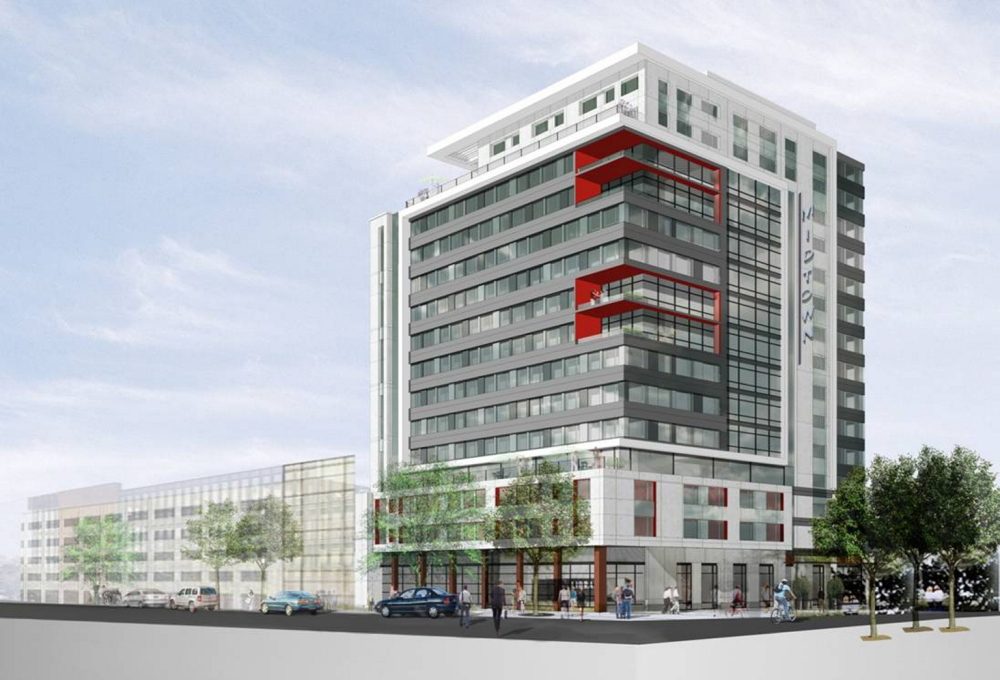Opponents of “midtown,” a proposed development in Bayside, vowed throughout the review process that they’d appeal if the Portland Planning Board approved the proposal. Last week, Keep Portland Livable – a group of residents and business owners opposed to the four residential high-rises – followed through on its pledge.
Among other criticisms, Keep Portland Livable contends in its lawsuit that the $105 million project doesn’t conform to the city’s comprehensive plan and land use ordinances and that the city didn’t keep all required records of meetings leading up to the decision.
The Cumberland County Superior Court will now decide whether or not midtown’s critics have a case for sending the project back to the Planning Board. Antipathy toward midtown and disagreement with the Planning Board’s decision on the project don’t justify halting the development. The plaintiffs in the lawsuit will have to show that there is something wrong with the way that decision was reached.
Opponents of midtown have spoken up early and often, coalescing last fall as Keep Portland Livable, organizing opposition through social media, hiring a lawyer and raising funds for a legal fight. The group sees the Federated Cos. development as out of scale and out of character for Portland. Members of the Planning Board raised some of the same objections but approved the proposal after concluding that it was in line with Portland’s comprehensive plan and zoning ordinances.
Now the superior court’s job is to decide whether a fair and reasonable person could have come to the same conclusion as the Planning Board, given the facts on the record. A judge is unlikely to second-guess a decision based on solid information, even if it’s not what the court itself would have decided. A sound Planning Board decision is made by people who are unbiased, who adhere to local and state ordinances and who can cite evidence for why they acted as they did.
But whatever the court decides to do now that Keep Portland Livable has sued the city, the lawsuit will have accomplished one thing: It will have further compounded Portland’s reputation as an anti-business city where people are ready to put obstacles in the way of any effort at development.
This is a fight that could wind up taking a lot of time and money and make it harder to attract other development and the revenue that supports municipal services, ultimately doing nobody in Portland any favors.
Send questions/comments to the editors.



Success. Please wait for the page to reload. If the page does not reload within 5 seconds, please refresh the page.
Enter your email and password to access comments.
Hi, to comment on stories you must . This profile is in addition to your subscription and website login.
Already have a commenting profile? .
Invalid username/password.
Please check your email to confirm and complete your registration.
Only subscribers are eligible to post comments. Please subscribe or login first for digital access. Here’s why.
Use the form below to reset your password. When you've submitted your account email, we will send an email with a reset code.